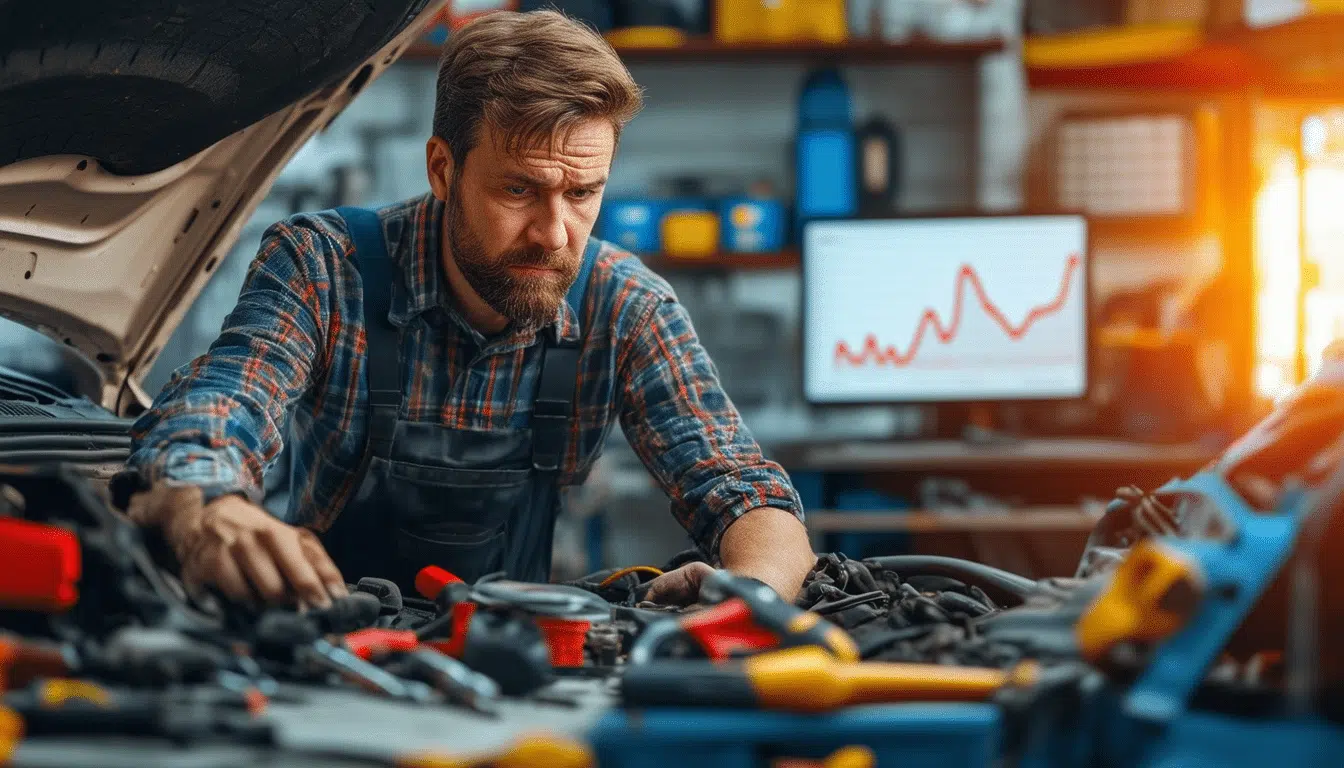Common maintenance errors that increase fuel costs

The proper maintenance of a vehicle is essential to ensure its efficiency and prolong its lifespan. However, there are common mistakes that many drivers overlook, which can lead to a significant increase in fuel expenses. Ignoring essential aspects such as tire pressure, the condition of the filters, or the proper functioning of the ignition system can turn an economical trip into a financial burden. Identifying and correcting these oversights is key to optimizing vehicle performance and reducing fuel costs.
Fuel expenses are one of the main concerns for drivers, especially when it comes to optimizing costs. However, many are unaware that certain maintenance errors can considerably increase the fuel consumption of their vehicles. Below are several of these common mistakes and how to avoid them to ensure optimal car performance.
Not checking tire pressure
Inadequate tire pressure is a frequent mistake that directly affects fuel consumption. When tires are underinflated, they create more rolling resistance, forcing the engine to work harder and, consequently, consume more fuel. It is essential to check the pressure regularly, following the manufacturer’s recommendations.
Dirty air filters
Dirty air filters limit the airflow to the engine, which can increase fuel consumption by up to 10%. An engine that does not receive enough air has to work harder, resulting in higher energy expenditure. Changing or cleaning air filters periodically helps maintain vehicle performance.
Ignoring ignition system maintenance
A malfunctioning ignition system can affect engine performance, increasing fuel consumption. If the spark plugs are not working correctly, they will not generate enough energy, causing the engine to use more fuel than necessary to operate. It is advisable to check and replace spark plugs according to the vehicle’s maintenance schedule.
Lack of brake system maintenance
Problems in the brake system, such as poor brake return, can cause additional resistance that elevates fuel consumption. It is crucial to ensure that the components of the brake system are in optimal condition and are checked regularly to avoid unnecessary increases in gasoline expenses.
Not performing engine checks
The engine of a vehicle must undergo regular diagnostics. Many times, hidden faults can lead to increased fuel consumption and harmful emissions. Diagnosing and addressing each issue in a timely manner can prevent excessive consumption and greater engine wear.
Neglecting fuel filter maintenance
Fuel filters are essential for keeping the injection system in good condition. If these filters become clogged, the engine must work harder to achieve the proper performance, resulting in higher gasoline consumption. Regularly changing these filters keeps the system efficient.
Driving aggressively
In addition to maintenance aspects, driving style also affects fuel consumption. Making sudden movements, such as accelerating and braking abruptly, can increase consumption. Driving at a constant speed within appropriate limits not only improves safety but also contributes to more efficient fuel use.
To optimize gasoline consumption, it is essential to adopt proper maintenance practices and drive efficiently. Learn about maintenance practices and improve driving habits by accessing more detailed studies to ensure optimal performance of your vehicle. Additionally, you can implement techniques as described in this link to maximize the performance of your gas tank.
One of the main factors impacting fuel consumption in vehicles is maintenance errors. A lack of attention to crucial elements, such as tire pressure or the condition of the air filter, can lead to a significant increase in gasoline expenses. For example, tires with inadequate pressure not only compromise safety but also create greater rolling resistance, resulting in higher consumption.
Moreover, engine maintenance is essential to ensure it functions optimally. Ignoring warning signs or not performing periodic diagnostics can lead to costly repairs and increased fuel usage. An engine that does not receive adequate attention might be operating inefficiently, thus raising fuel costs, often without the driver noticing.
Another common mistake is neglecting the ignition system. If the spark plugs or cables are in poor condition, the engine will not operate correctly, leading to increased fuel consumption. It is also important to avoid aggressive driving, such as sudden acceleration and braking, as this not only reduces fuel efficiency but also affects the wear of mechanical components.
Finally, failing to carry out regular maintenance and letting time pass without checking dirty air filters or malfunctioning brake systems can have serious repercussions on fuel performance. Investing in proper preventive maintenance not only optimizes vehicle performance but also contributes to significant savings in fuel expenses.



